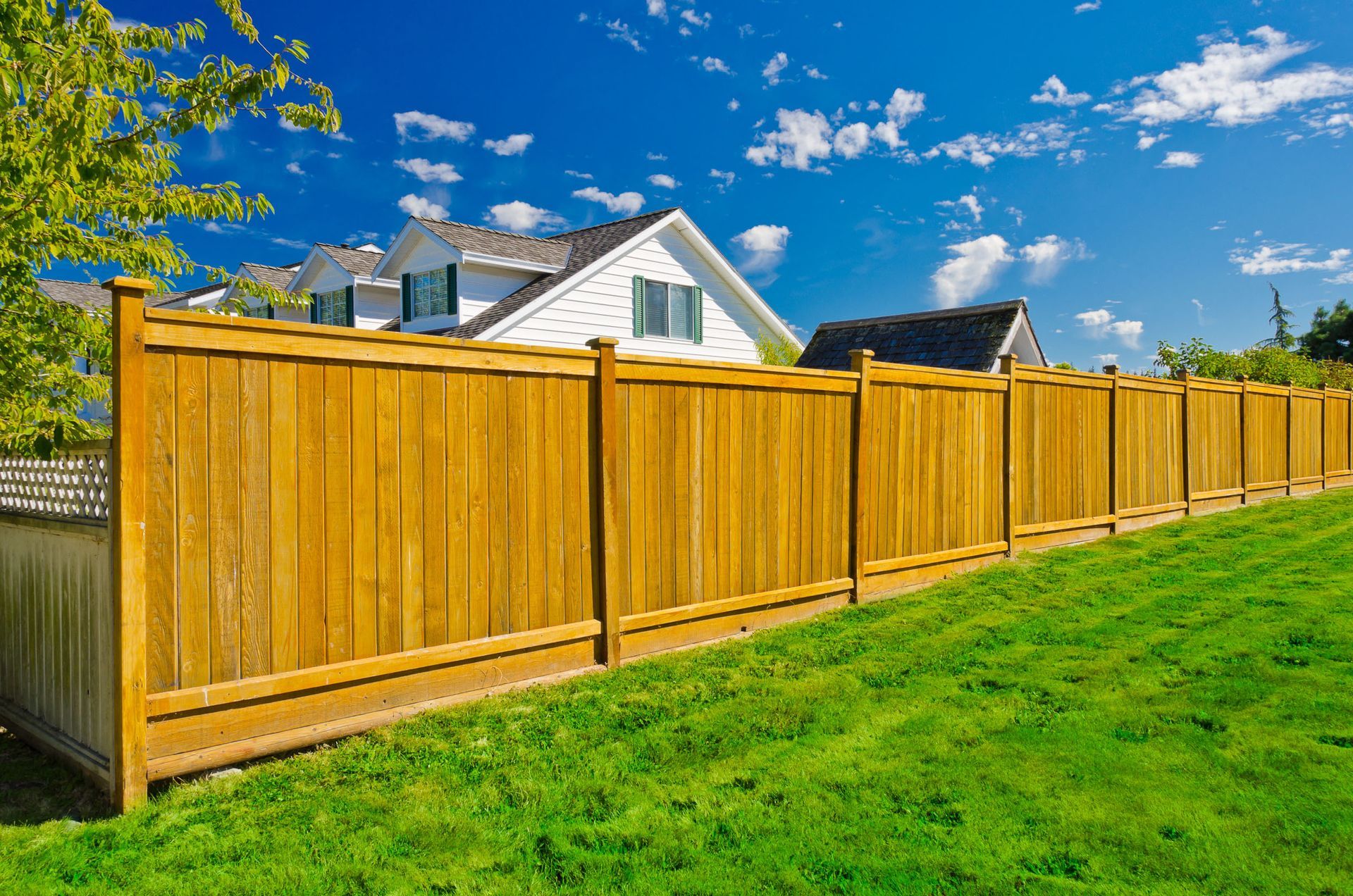All Categories
Featured

Picking the right kind of fencing for your building is a significant choice that can impact both the aesthetic appeals and capability of your space. Whether you're trying to find personal privacy, safety and security, or merely an ornamental feature, there are different factors to think about when selecting the optimal fencing. Below are some crucial considerations to help direct your decision-making process.
- Figure out the Objective of the Fence. The very first step in selecting the ideal sort of fencing is to clarify its purpose. Various fencings serve different features, and comprehending your details needs will assist tighten down your alternatives. Take into consideration the complying with:
Personal privacy: If you're looking for personal privacy, a high and strong fencing such as timber or plastic will avoid prying eyes from seeing into your yard. Safety: For protection objectives, a strong, tall fence constructed from light weight aluminum or steel can deter burglars and offer comfort. Aesthetic Charm: A decorative fence made from wrought iron, aluminum, or picket-style timber can add charm and curb attract your home. Pet Dog or Pet Control: If you require to contain pets or animals, a strong fence like chain link or wood might be essential to avoid them from getting away. 2. Think about the Material. It's time to pick the material once you have actually established the fence's primary objective. Each type of product includes its own collection of obstacles and advantages. Here are some typical products to take into consideration:
Wood: Timber fencings are personalized and functional, providing privacy and a timeless appearance. They're perfect for typical homes or rural buildings yet call for regular upkeep to avoid rot, warping, or parasite infestation. Plastic: Vinyl fencings are low-maintenance, long lasting, and available in a variety of designs. They will not split, warp, or fade, making them an excellent option for those who desire a long-lasting, problem-free fence. Vinyl can be a lot more costly ahead of time than timber. Light weight aluminum: Light weight aluminum fences give a sleek, modern-day appearance and are sturdy, rust-resistant, and call for minimal maintenance. Nevertheless, they usually don't offer as much personal privacy as timber or plastic, as the slats are commonly spaced apart. Chain Link: Chain link fences are usually made use of for protection or to include family pets. They are resilient and cost effective, however they don't supply much personal privacy or aesthetic allure unless you include slats or personal privacy screens. 3. Aspect in the Environment and Upkeep Needs. Your region's environment can considerably influence the life-span and upkeep requirements of your fence. Products like wood might need added treatment to prevent rot or mold growth if you live in a location with high humidity or regular rain. On the various other hand, plastic and light weight aluminum fences are immune to the elements and need much less maintenance.
In addition, take into consideration the quantity of time and initiative you're prepared to commit to fencing upkeep. Timber fencings require regular staining or painting to preserve their look, while plastic and aluminum need much less maintenance.
- Think of Resilience and Life-span. Consider for how long you want your fencing to last. If you're trying to find a fence that will certainly last for decades with little maintenance, vinyl and aluminum are excellent selections. While wood fencings can last 10-20 years with appropriate treatment, they might not stand up to the test of time along with various other products.
Also, consider your budget. Products like wood and chain link tend to be more inexpensive upfront, while vinyl and aluminum often tend ahead with a higher preliminary cost yet use long-term sturdiness.
- Suit the Fencing to Your Residential Property Design. The kind of fencing you pick ought to enhance the overall look and feel of your building. A well-chosen fencing can improve your home's visual charm, while an inadequately selected fence can take away from it. :
Traditional Houses: A traditional timber picket fence or a wrought iron fence functions well with older, much more standard homes. Modern Houses: For a modern appearance, smooth materials like light weight aluminum or vinyl can complement contemporary style. Country or Farm Features: A wood or wire fencing might be suitable for country residential or commercial properties or ranches, where functionality is just as crucial as visual appeals. 6. Check Neighborhood Regulations and HOA Standards. Before making your decision, examine your neighborhood zoning regulations and any type of HOA (Homeowners Organization) standards to ensure that your desired fence complies with height limitations, material needs, and various other local laws. Some areas have certain rules regarding the appearance of fencings, especially in property areas.

Final thought. Choosing the right fence for your residential property calls for cautious consideration of your demands, budget plan, and the style of your home. Whether you're prioritizing personal privacy, safety, or aesthetic charm, there's a fencing product and layout that will suit your demands. By taking into consideration the elements outlined over, you can make an informed decision and choose a fencing that will certainly enhance the capability and elegance of your home for several years to come.
Latest Posts
Why Chicago Drivers Choose Montclare Auto Repair for Reliable Service and Significant Savings
Published May 17, 25
1 min read
Explore the Premier Eye Specialists for Cataract Surgery at the Eye Center South
Published May 17, 25
1 min read
Why Pick Montana Fencing for Your Chain Web Link Secure Fencing Requirements
Published May 16, 25
1 min read
More
Latest Posts
Why Chicago Drivers Choose Montclare Auto Repair for Reliable Service and Significant Savings
Published May 17, 25
1 min read
Explore the Premier Eye Specialists for Cataract Surgery at the Eye Center South
Published May 17, 25
1 min read
Why Pick Montana Fencing for Your Chain Web Link Secure Fencing Requirements
Published May 16, 25
1 min read